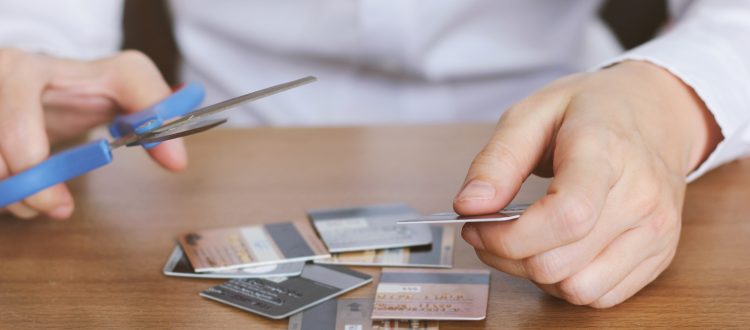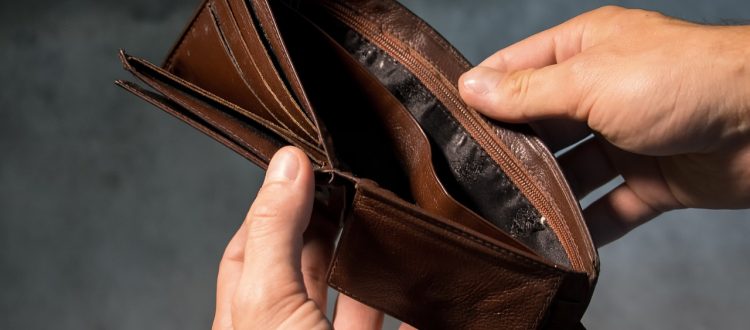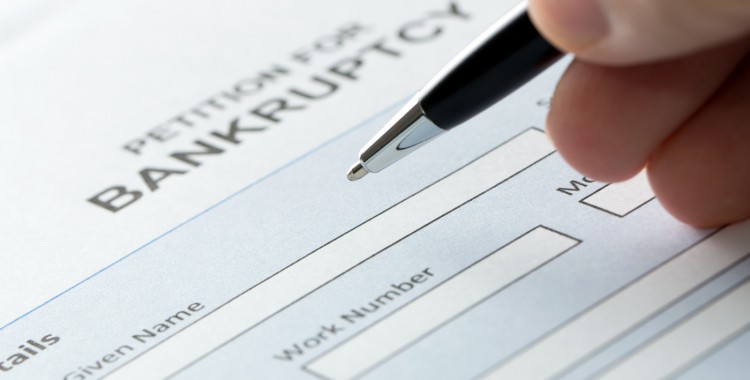NH Bankruptcy Attorneys
As dedicated bankruptcy attorneys in New Hampshire, we specialize in Chapter 7 and Chapter 13 cases, working tirelessly on your behalf.
Our mission is to guide you through the complexities of bankruptcy law, emphasizing the significance of your assets, liabilities, and debt ratio. Our attorneys will help you learn about debt control strategies that can help maximize the benefit of bankruptcy protection. Contact us today to schedule your free legal consultation with one of our experienced attorneys, (603) 934-9837. You can also fill out the form on the right and we will contact you as soon as possible, discuss over the phone and/or make an appointment at your earliest convenience.
If you find yourself in a situation in which circumstances cause you to become completely out of your control. Your original intentions were purely honorable, but due to our economy’s recent down slide or for other reasons, you are caught in the middle of a financial crisis. This crisis affects not only your pocketbook, but often harms your marriage, stands in the way of a happy productive life and may even impair health.
“Bankruptcy helps people who can no longer pay their debts get a fresh start by liquidating assets to pay their debts or by creating a repayment plan. Bankruptcy laws also protect financially troubled businesses. This section explains the bankruptcy process and laws.” ~ us.courts.gov
When you need the help of a skilled New Hampshire bankruptcy lawyer to help you move past the limitations and burdens created by unmanageable debt, contact Seufert Law Office today to speak to an attorney!
Speak with an experienced New Hampshire bankruptcy attorney today at (603) 934-9837
What You Need To Know About Bankruptcy In New Hampshire
What is Bankruptcy?
Bankruptcy is a process used under Federal Law that allows those in severe amounts of debt to be relieved of their financial burdens. It prevents creditors from pursuing payments or repossessing your assets. Bankruptcy can prevent your bank from foreclosing on your home and instead helps you to get caught up on mortgage payments. It allows you and your family to have a new start without debt and without losing your home or other valuable assets.
In New Hampshire, there are two ways you can file for bankruptcy— Chapter 7 and Chapter 13. How you need to file depends upon several factors. The bankruptcy lawyers at Seufert law can help you decide which is best, and help you navigate the process.
What is Chapter 7 Bankruptcy?
In New Hampshire, a chapter 7 bankruptcy is defined as “liquidation where the trustee collects all of your assets and sells any assets which are not exempt.” This type of bankruptcy is most common among those who have large amounts of credit card debt and few assets. Chapter 7 does not always absolve you of your responsibility to pay your secured loans— such as a house or car loans. If you decide to keep your property that is secured by you are required to sign a “Reaffirmation Agreement” which reaffirms your commitment to the loan, and you must continue making the payments, otherwise, you elect which of these to give back to the bank (s).. With chapter 7 bankruptcy, there are a few types of debts which cannot be discharged these include child support, fines incurred from receiving a DUI, student loans, among other things.
What is Chapter 13 Bankruptcy?
A chapter 13 bankruptcy is preferred if you are behind on your mortgage or business payments, and wish to keep your property. It is also the only option if you earn too much income to qualify for a chapter 7 bankruptcy or only have debts which are non-dischargeable. A chapter 13 does not ‘wipe out’ debt in the way that chapter 7 bankruptcy can, instead it allows for a person in financial distress to get caught up on their payments and prevents creditors from repossessing or foreclosing on their property. In this case, you propose a repayment plan to your creditors, usually over the course of 3-5 years, to become current on your debts and then return to the original terms of the loan. The amount you must repay is determined by the amount of your disposable income and a few other factors. To qualify for chapter 13, you must earn a regular income and have some disposable income to apply to your debt. The amount of debt to be repaid is determined as part of the New Hampshire Bankruptcy Means Test.
Should I Hire a New Hampshire Bankruptcy Lawyers?
Regardless of your circumstances, you have options to help you manage your debt and regain control of your finances. The bankruptcy process can be complex and time-consuming, but the experienced bankruptcy attorneys at Seufert Law Office are here to walk you through each step and ensure you are making decisions to benefit you and your family. If you have more questions or would like to schedule a consultation, contact us today.
Consult with an NH Bankruptcy Attorney Today
Our team of skilled bankruptcy attorneys is ready to provide you with expert guidance and support during these challenging financial times. If you have questions, need advice, or are ready to take the next steps toward financial relief, please fill out the contact form below. We’re committed to helping you achieve a fresh start, and your journey begins here. Connect with a New Hampshire bankruptcy attorney today, and let us work together to secure your financial future.
Additional Bankruptcy Law Information
- Facts About Bankruptcy
Know the facts and your rights when it comes to bankruptcy procedures. - Bankruptcy Petition Sample
Review our sample bankruptcy petition. - Visit Our Library
Browse through the many publications that we have amassed over the years. This is a great place to educate yourself in the many areas that we specialize in. Some of the publications may help you determine that you in fact don’t need a lawyer and some will prove that you do. - Meet Our Attorneys
Get to know our New Hampshire attorneys and discover how they will help you get the justice you deserve. Learn what each of us specializes in and how we can help you.
Recent Bankruptcy Law News & Resources

Pensions – Bankruptcy Proceedings

Filing for Bankruptcy and What You Should Know About Student Loans

Should I File for Bankruptcy?

Everything You Need To Know About Bankruptcy In New Hampshire

Is Bankruptcy the Right Option?

Filing Bankruptcy During COVID-19
What Our Clients Are Saying
“The people at Suefert Law really care about their clients. They went far above and beyond what was expected in order to make sure my family was taken care of. I couldn’t recommend them more highly.”
“I had no idea how to proceed with my case, the law office and the staff made me feel so comfortable and always got back to me quickly. I would recommend them to anyone who needs legal aide.”
Bankruptcy Law FAQ
Can I File for Bankruptcy without My Spouse?
Yes, it is possible to file for bankruptcy as an individual even if your spouse does not wish to participate in the process. The law permits an individual to file a bankruptcy petition without requiring the spouse to be included in the filing. However, it's important to note that when you file as an individual, you are still required to account for all income received, which includes disclosing the non-filing spouse's income.
It's crucial to be aware that if you have joint financial obligations, such as a joint credit card or joint accounts, and your spouse is not part of the bankruptcy case, the creditor can still pursue collections from the non-filing spouse for those joint debts.
The decision to file an individual bankruptcy petition or a joint one should be made carefully, as there are advantages and disadvantages to each approach, and the choice depends on the specifics of your situation. To make an informed decision, it is highly advisable to consult with an attorney who specializes in bankruptcy law in New Hampshire, as every case is unique and should be evaluated on an individual basis. An attorney can provide guidance tailored to your circumstances and help you understand the implications of your choice.
If I File for Bankruptcy, am I Required to Take a Course on Credit Counseling?
Yes, as part of the bankruptcy process, you are required to complete a credit counseling course. Before you can file for bankruptcy, you must attend a two-hour pre-filing briefing with an approved credit counselor. During this session, the credit counselor will assess your current financial situation and provide you with information about potential alternatives to bankruptcy. This step is designed to help you determine whether bankruptcy is indeed the most appropriate solution for your debt problems.
The credit counseling requirement serves as a valuable opportunity to explore your financial options and make an informed decision regarding bankruptcy. Once you have completed this counseling session, if it is determined that filing for bankruptcy is the best course of action, you will proceed with your bankruptcy petition. After filing, you will also be required to attend a final credit counseling meeting to fulfill the program's requirements. Your bankruptcy case will continue as you work through the necessary steps to address your financial situation.
How Do I Stop Collection Calls and Creditor Harassment?
Creditor harassment can be distressing, but filing for bankruptcy can provide you with immediate relief from these collection efforts. When you file a bankruptcy petition, you don't need to wait for court approval or an order from the bankruptcy court for protection. The act of filing for bankruptcy triggers an automatic stay, which is a legal injunction that halts all collection activities against you. This automatic stay applies to a wide range of collection efforts, including:
- Harassing Phone Calls: Once you file for bankruptcy, creditors are prohibited from making harassing phone calls to collect debts.
- State Court Proceedings: Any ongoing state court proceedings related to debt collection, such as lawsuits or judgments, are temporarily halted.
- Repossession: If your creditors were attempting to repossess your property, such as a car or home, the automatic stay will prevent further repossession efforts.
- Foreclosure: If you're facing foreclosure on your home, the automatic stay will temporarily halt foreclosure proceedings.
- Wage Garnishment: If your wages were being garnished to repay debts, the automatic stay will stop these deductions.
It's important to note that all of your creditors must be notified of your bankruptcy filing, and they are legally bound to participate in the bankruptcy case rather than pursuing other collection activities. Additionally, in emergency situations, it is possible to file an expedited bankruptcy petition, which can provide rapid relief from creditor harassment.
If you are experiencing creditor harassment, it is advisable to consult with a bankruptcy attorney who can guide you through the process and ensure that your rights are protected under the automatic stay. They can also help you determine whether bankruptcy is the right option for your financial situation.
Will Everyone Know if I File Bankruptcy, Including My Employer?
Generally, the knowledge of your bankruptcy filing is limited to specific parties involved in the process. These typically include you, the creditors you've listed in your bankruptcy petition, the bankruptcy court, and the US Trustee's Office. Your bankruptcy filing is not commonly published in local publications, nor is it widely disseminated to the public.
While bankruptcy is considered public information, it is typically accessible only to those who have legitimate reasons to access your credit history. This means that individuals or companies with a valid need, such as potential lenders or landlords, may become aware of your bankruptcy filing and its timing.
However, in most cases, your bankruptcy filing is not automatically disclosed to the general public, and it should not be a matter of common knowledge among acquaintances, colleagues, or neighbors unless you choose to disclose it yourself. If you have concerns about the confidentiality of your bankruptcy filing or any specific questions about the process, please don't hesitate to reach out to our offices. We are here to provide you with information and guidance related to bankruptcy.
How Can I Rebuild My Credit After a Bankruptcy?
Rebuilding your credit after a bankruptcy is a gradual process, but it's certainly achievable. Here are some key steps to help you get started on the path to improving your credit score:
- Pay Bills on Time: As you mentioned, one of the most critical steps is to consistently pay all of your bills on time. This includes not only credit cards but also other financial obligations like rent, utilities, and any new credit you acquire after bankruptcy. Timely payments demonstrate financial responsibility and positively impact your credit score.
- Create a Budget: Establishing a budget can help you manage your finances effectively and ensure you have enough funds to cover your expenses and make timely payments. A well-organized budget can prevent future financial difficulties.
- Secure a Secured Credit Card: Obtaining a secured credit card can be a useful tool for rebuilding credit. With a secured card, you deposit a certain amount of money as collateral, and your credit limit is typically equal to that deposit. Using this card responsibly and paying the balance in full each month can help rebuild your credit history.
- Monitor Your Credit Report: Regularly review your credit report from all three major credit bureaus (Equifax, Experian, and TransUnion). Ensure that the information is accurate and that your bankruptcy has been properly reported as "discharged."
- Diversify Your Credit: A mix of credit types can positively affect your credit score. If you have only one type of credit account, consider diversifying with a different type, such as a small personal loan or retail store credit card, in addition to a secured credit card.
- Keep Existing Accounts Open: If you managed to retain certain accounts, such as a mortgage or auto loan, during your bankruptcy, maintaining these accounts in good standing can significantly benefit your credit score.
- Seek Professional Guidance: Consider consulting with a credit counselor or financial advisor who specializes in credit repair and financial planning. They can provide personalized advice based on your unique financial situation.
- Be Patient: Rebuilding credit takes time. While your credit score may have taken a hit due to bankruptcy, responsible financial habits will gradually improve it over time.
Remember that the impact of bankruptcy on your credit score lessens as time passes, and eventually, it will no longer be the primary factor affecting your creditworthiness. With patience and responsible financial management, you can rebuild your credit and regain your financial footing.
If I Am Getting Divorced and We Can’t Pay the Bills, Should I File for Bankruptcy?
Choosing the right timing for bankruptcy in New Hampshire in the midst of a divorce is a significant decision that can impact your financial future and the divorce proceedings. It’s in your best interest to consider filing for bankruptcy before finalizing your divorce, especially due to changes in bankruptcy law. Waiting until after the divorce is finalized and potentially being ordered by the divorce court to pay joint debts could complicate matters. In many cases, the bankruptcy court is expected to enforce the divorce court's orders, so if you attempt to include joint debts that the divorce court has mandated you to repay, your ex-spouse may object to your bankruptcy filing.
It's a prudent choice to consult with a bankruptcy lawyer before your divorce is finalized. This way, you can carefully assess your options and create a strategic plan that addresses both your financial and divorce-related concerns.
If My Income is Above the Allowed Bankruptcy Limits, Can I Still File for Bankruptcy Protection?
Absolutely, you can still file for bankruptcy as a high-wage earner, but the type of bankruptcy you may qualify for and the conditions of your bankruptcy will depend on various factors, including your income, expenses, and financial situation.
If you have a substantial income and assets, you may not be eligible for Chapter 7 bankruptcy, which allows for the discharge of unsecured debts without a repayment plan. In such cases, Chapter 13 bankruptcy is a common alternative. Under Chapter 13, your income and expenses are closely examined, and a structured repayment plan is developed. You'll make monthly payments to the court, which are based on your excess income over necessary expenses. This repayment plan typically lasts for a period of 3 to 5 years.
However, it's essential to note that eligibility for bankruptcy is not solely determined by your income. Your living expenses, which can include a high mortgage, multiple car payments, educational expenses, and other necessary costs, are also taken into account. The bankruptcy court evaluates not only what you earn but also what it costs you to maintain your standard of living.
Before making a decision, it's highly advisable to consult with a bankruptcy attorney who can assess your specific financial situation, provide guidance on the type of bankruptcy that suits your circumstances, and help you understand the implications and requirements of the chosen bankruptcy chapter. They will work with you to create a strategy that aligns with your needs and objectives, given your high-income status and debt situation.
Should I Cash in Some of My 401K to Pay Overdue Credit Cards?
Cashing in your 401(k) to pay off overdue credit cards is not advisable for several important reasons:
- Retirement Funds Depletion: Your 401(k) is a vital source of retirement savings, and using it to pay off credit card debt can significantly deplete your future financial security. Once you deplete these funds, they may not be easily recoverable.
- Financial Consequences: Cashing in retirement funds may lead to tax consequences, including penalties and income tax on the withdrawn amount. This can further erode your savings.
- Long-Term Impact: The long-term impact of withdrawing from your retirement savings can be substantial, as it disrupts the power of compound interest and growth potential that these funds offer over time.
- Risk of Running Out of Funds: If you exhaust your retirement savings prematurely, you may find yourself with insufficient resources to support yourself during your retirement years, potentially relying solely on Social Security benefits.
- Protection from Creditors: Retirement accounts are typically protected from creditors under state and federal laws. Creditors generally cannot access these funds to satisfy debt obligations. There are, however, some exceptions, such as unpaid federal taxes or specific court orders related to divorce or child support.
In most cases, it's more prudent to explore other options for managing overdue credit card debt. Consider speaking with a financial advisor or credit counselor who can help you develop a plan to address your debt without jeopardizing your retirement savings. Alternative solutions may include negotiating with creditors, consolidating debt, or seeking professional guidance on debt management. Protecting your long-term financial stability should be a top priority.
How Much Credit Card Debt Do I Need to File for Bankruptcy?
Bankruptcy law doesn't operate based on a specific threshold of debt; rather, it hinges on whether your debts exceed your ability to repay them. Your financial situation is fundamentally about your income and expenses. If you make $500 a week, you have a $500 weekly budget. If you make $5,000 a week, you have a $5,000 weekly budget. No matter what your lifestyle, if your debts surpass your income, you're facing financial challenges.
Typically, individuals we assist have accumulated debts ranging from $20,000 to $50,000, including credit cards and uninsured medical bills, and their income is insufficient to cover these obligations. If, at the close of each month, you find unpaid bills still on your kitchen table despite earnest efforts to cut expenses, it may be a suitable time to seek advice from a bankruptcy attorney. They can help you assess your financial options and determine whether bankruptcy is a viable solution to regain control of your financial stability.
My Wife and I Gave Good Jobs but We Still Can’t Pay the Bills. Do We Make Too Much Money to File for Bankruptcy?
Determining whether your income disqualifies you from filing for bankruptcy is not solely based on your earnings; it's a multifaceted evaluation. While you both may have stable employment with good incomes, the local cost of living plays a crucial role. Bankruptcy law recognizes this by allowing you to factor in the cost of living in your area when assessing your eligibility.
For instance, in New Hampshire, where wages and living costs are relatively higher, the income limits for bankruptcy take this into account. If you're single and your income exceeds around $50,000, you may face additional requirements to file. However, this threshold can vary based on your specific circumstances.
If you're married with children, the income limit increases significantly, often to around $95,000 for a family of four. So, even if it seems like you earn too much, if your income is insufficient to meet your financial obligations, you may still qualify for bankruptcy relief.
In essence, making the decision to file for bankruptcy involves a comprehensive evaluation of your financial situation, including income, expenses, and debt. Consulting with a bankruptcy attorney can provide clarity on your eligibility and help you explore the best course of action to address your financial challenges. If you're unable to meet your bills despite your income, it's worth considering bankruptcy as a potential solution to regain financial stability.
If I File for Bankruptcy, Does My Wife Have to File As Well?
No. If the debt is all in your name or mostly in your name, you can file in your name alone and preserve her credit rating. You should ensure your wife isn't a co-signer on the debt, like credit cards in both names or joint mortgages. If there's any doubt, look at the original credit applications for who signed them. That's who's responsible. But, if the debt is in your name alone, then only you need to file.
You will still have to disclose what wages your wife makes, as this will be considered family income for purposes of the income limits test. But the bankruptcy will only be recorded under your name. She can then use her good credit rating going forward until you can repay yours.
I am getting calls from a bill collector that’s many years old, what do I do?
How Long Can Debt Be Collected?
Most people need to understand that some bill collectors try to get you to pay on no longer collectible debts. You might think it's illegal, but it's not. On Wall Street, an old debt like written-off credit card balances are bundled and sold to collection firms for pennies on the dollar. Then, they try to squeeze the people to pay on these old debts. If they're unsuccessful, they'll rebundle you and sell it again. But most of the time, the statute of limitations has run. But they can call you and trick you into paying this debt. If you receive these calls, consult a lawyer experienced in this area before you return the calls.

